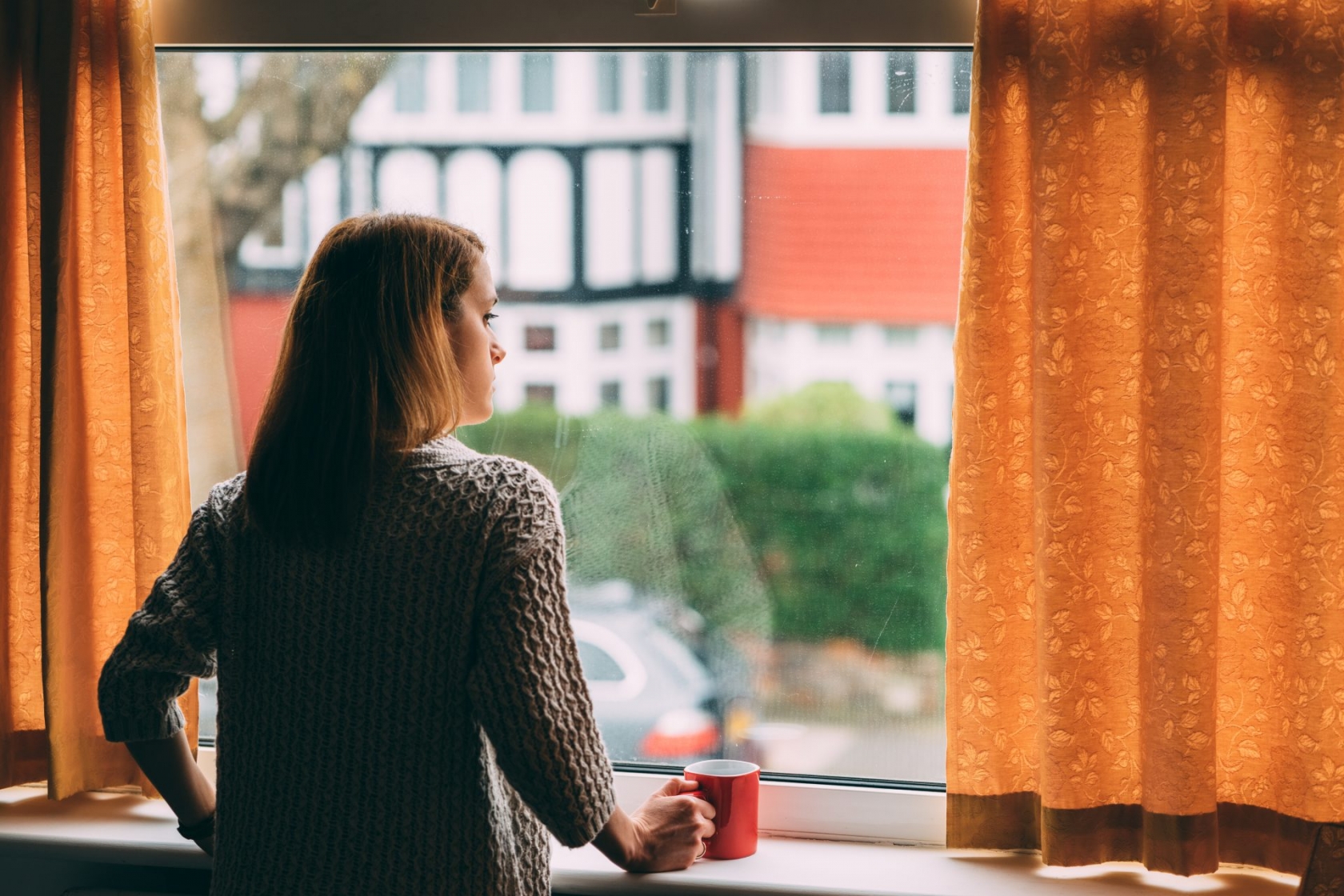From tomorrow (Monday 29 March), the government’s “Stay At Home” rule comes to an end. If the change in restrictions has you feeling nervous, here’s how adopting a curious mindset could help to alleviate feelings of post-lockdown anxiety.
The past 12 months have, in many ways, felt like 12 years. 2020 moved at a snail’s pace and yet, at the same time, time could sometimes feel like it was slipping through our fingers like sand. Even now – is it really almost April already?
It’s been a crash course in dealing with uncertainty, and the coronavirus pandemic has forced us all to undergo a series of big changes. Now, with the end of the third national lockdown now fast approaching, there are even more changes to come.
From tomorrow (Monday 29 March), the government’s “Stay At Home” message comes to an end and the rule of six returns. Up to six people from six different households will be able to meet outdoors, or a large group from two households, and outdoor sports can resume.
It’s the first major change since Boris Johnson announced the roadmap back in February. After so long spent adapting to this new way of life, it’s understandable if the idea of going back to ‘normal’ has left you feeling anxious.
It’s worth noting that it’s completely normal to feel hesitant at the idea of getting back to socialising, seeing friends and being busy after so long, and it’s OK to take things at your own pace.
However, if you’re looking for a way to ease some of that anxiety, then psychology could just have the answer for you: embracing curiosity.
When we think of curiosity, we tend to think of things like learning a new hobby or picking up a new skill, but curiosity can also be used as a tool to help navigate periods of uncertainty.
According to chartered psychologist Dr Meg Arroll, by asking questions and approaching the world with a curious perspective, you not only put yourself in a position to listen and learn from others, but you also open your mind to new possibilities that could actually help to tackle the uncertainty you’re facing, something that can feel hard when you’re dealing with anxiety.

“We have just experienced a lengthy period of chronic stress and uncertainty, so it’s not at all surprising that another transition is anxiety-provoking, even if it is something we ultimately desire,” she tells Stylist. “One way to cope with these uncomfortable feelings is to approach the easing of lockdown restrictions through a lens of curiosity.
“When we’re curious we tend to have an open mind, whether this is regarding our feelings, potential experiences or those of others. Curiosity is also associated with a mindset that allows for numerous possibilities, whereas the opposite, critical mindset is fixed and closed.”
In short, embracing curiosity can help to alleviate anxiety because it puts you in better stead to find solutions that work for yourself and those around you, eradicating some of the uncertainty that might be triggering your anxiety in the first place. It can also help you to see the easing of lockdown restrictions as an opportunity to grow rather than something to fear.
With all of this in mind, it’s clear that approaching the easing of lockdown with a curious mindset is one way to make the process a little easier. And according to Dr Arroll, adopting such a mindset is easier than you might think.
“To foster a curious mindset, I like to suggest the phrase ‘be more cat’,” she explains. “Cats give things a go and dip their paws into situations to see what will happen. They’re very interested in their environment and like to observe what’s going on around them. They also listen much more than they talk!”
How to adopt a curious mindset
To create a helpful sense of curiosity around the end of lockdown for yourself, Dr Arroll recommends taking three, simple steps.
1. Take it slow
“If you’re concerned about going out into the world, start with small steps to build your confidence back up.”
2. Focus on those around you
“Move the focus from the self to others and see what everyone else is doing and how they are reacting – chances are they have similar concerns and fears to you.”
3. Ask questions
“Finally, ask others open questions that you have been thinking about and listen. For example, ask ‘what will working in an office again feel like?’ and truly hear what they are saying.
“Finding out how other people are feeling and their ideas for how we should approach our familiar, yet changed world is a good way to use curiosity as a coping strategy because it employs information gathering, emotional support and practical solutions, all of which we know to be beneficial to mental health.”
Although we’ll all have different concerns and worries about the prospect of lockdown easing, adopting a curious mindset could help to alleviate some of that anxiety.
Indeed, by reaching out to others and asking how they’re coping, you not only put yourself in a position to be able to cope better – you could be helping others by allowing them to open up, too.
Images: Unsplash/Getty
Source: Read Full Article
